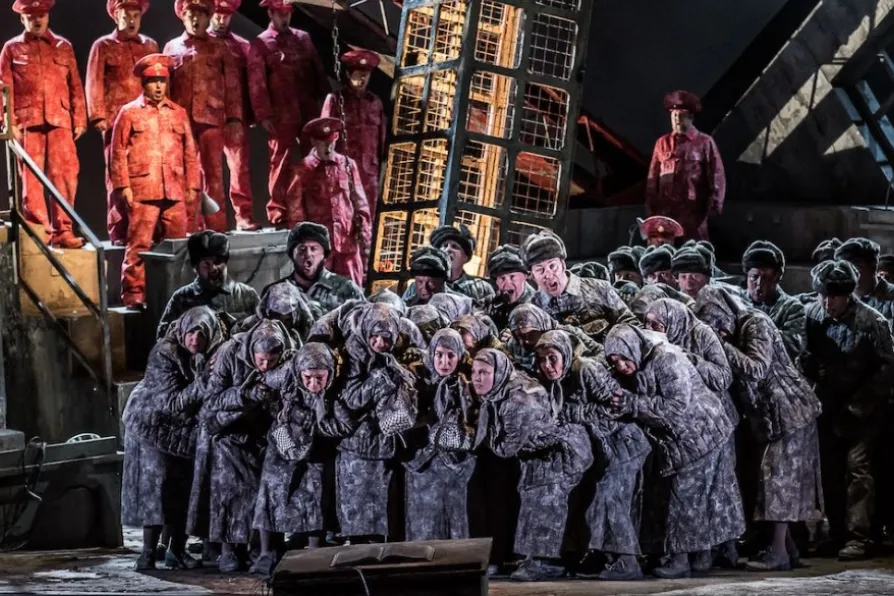MARJORIE MAYO, JOHN GREEN and MARIA DUARTE review Sudan, Remember Us, From Hilde, With Love, The Road to Patagonia, and F1

 The chorus performs during Khovanshchina at the Millennium Centre
The chorus performs during Khovanshchina at the Millennium Centre
The Herculean sprawl of Modest Mussorgsky’s unfinished opera, Khovanshchina, is the first offering of Welsh National Opera’s Russian season, supposedly celebrating the centenary of the Russian Revolution.
Mussorgsky died before he finished his epic work about 17th-century Russia, but the version the WNO have adapted was orchestrated by Soviet composer Dmitri Shostakovich in 1958.
Sung in Russian, this is a revival of director David Pountney’s 2007 production.
Company conductor Tomas Hanus and the orchestra are impeccable, with Hanus conjuring an amazingly bucolic feel from Mussorgsky’s beautiful and surprisingly gentle overture.
It is a lovely contrast to the power and fury that follows in the opera itself.
With clashes between religious groups and warring factions striving for power, the scale of this production is lavish.
The staging is industrial grey, with a wrecking ball hanging symbolically over the stage.
Such is the spectacle and sound that the majestic chorus brings to its performance that it seems as though there is a cast of thousands on stage.
Without ever seeing them, the forces of Tsar Peter the Great’s supposedly modernising forces are gathering to sweep away the reactionary power of the Khovanskys and their private army, the Streltsy.
Adrian Thompson sings the part of the scribe — because of widespread illiteracy, this was a person who wrote down and read to people.
Thompson almost steals the honours from Sara Fulgoni’s Marfa and the traditionalist priest Dosifei, masterfully sung by Miklos Sebestyen.
During a bloodthirsty act four the dissolute Prince Ivan Khovansky, brought vividly to life by baritone Robert Hayward, is bathing and demands that his Persian slave dances for him.
Choreographer Beate Vollack herself dances Ivan’s protracted sado-erotic fantasy, and balances gymnastically as she dances on the rim of the bath itself.
The improbable, but spectacular, fantasy is ended when the villainous reactionary is assassinated.
Pountney and company manage to bring Mussorgsky’s tale of a convoluted episode in Russian history to vivid life, but at three hours 30 minutes this is a marathon.
But what this makes this so enjoyable, as so often at the WNO, is the majestic chorus who take the honours with a sound that could almost sweep across to the Russian steppes.
Wales Millennium Centre then touring until October 31. See www.wno.org.uk for details.


















